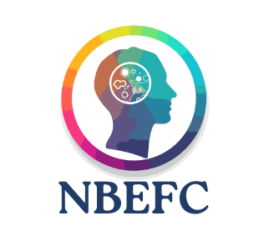Governance & Leadership
The National Board of Executive Function Certification operates under a formal governance structure that ensures integrity, transparency, and accountability in all aspects of certification, education, and professional conduct.
Our Governance Philosophy
NBEFC’s governance model ensures all decisions are informed by multidisciplinary expertise and grounded in evidence-based practice
Integrity
We uphold the highest standards of professional ethics and conduct in all certification decisions
Transparency
Our governance structure and policies are clearly defined and regularly reviewed
Accountability
We maintain responsibility to certificants, the public, and the profession we serve
Excellence
Evidence-based standards drive our certification, education, and professional development programs
Executive Leadership

Michele Nusbaum
Executive Director, National Board of Executive Function Certification
Michele serves as the Executive Director and Founder of the National Board of Executive Function Certification (NBEFC). She oversees the Board’s operations, certification policy, ethics, and educational initiatives, including the Give Teachers EF Initiative and NBEFC’s Continuing Education framework. Her leadership supports the Board’s mission to expand awareness, improve educational access, and maintain the highest standards of professionalism in executive function training and certification.
Governance Board Members
The Executive Director is joined by Governance Board Members who provide governance oversight and continuity. These members maintain privacy to preserve nonpartisan representation and objectivity in Board decision-making.
This structure ensures that certification standards, ethical policies, and professional requirements are established through collaborative expertise rather than individual influence.
Advisory Board
Multidisciplinary professionals providing expertise and guidance to strengthen NBEFC’s mission
Expert Guidance Across Disciplines
The Advisory Board is composed of professionals representing education, psychology, behavioral science, and related disciplines. Members provide expertise and guidance that strengthen the Board’s mission of advancing integrity, quality, and consistency in executive function education and certification.
Each Advisory Board member contributes to the Board’s initiatives through consultation, review, and participation in internal committees aligned with their area of expertise. Their collective insight supports the development of ethical standards, continuing education, and best practices that serve both professionals and the communities they impact.
Committees of the Board
Standing committees provide oversight, governance, and specialized input in key areas of professional practice
Ethics & Professional Standards Committee
Oversees adherence to the NBEFC Code of Ethics and ensures certified professionals uphold the highest standards of conduct.
Education & Provider Review Committee
Evaluates educational provider applications, CEU submissions, and program quality for alignment with Board standards.
Certification & Examination Committee
Guides exam design, delivery, and evaluation to maintain fairness, consistency, and national credibility.
Research & Policy Committee
Reviews emerging research and informs updates to policy, continuing education, and professional standards.
Committee Operations
Committees may include Advisory Board members as well as other appointed professionals with relevant expertise. Committee activities are conducted internally to preserve confidentiality and operational integrity.
Our Commitment to Excellence
Through collaboration between the Executive Director, Governance Board Members, Advisory Board, and standing committees, NBEFC maintains its mission of promoting professional excellence, ethical practice, and consistency across the field of executive function.
Annual Review: NBEFC reviews its governance policies annually to ensure continued compliance with national expectations and evolving best practices. The Board remains committed to transparency, accountability, and the ongoing advancement of its standards in service of professionals and the individuals they support.
Questions About NBEFC Governance?
We’re committed to transparency and welcome inquiries about our governance structure
Contact Us